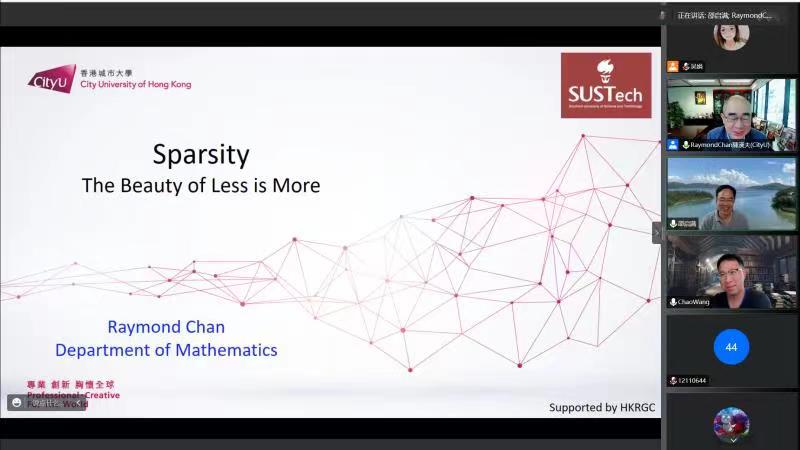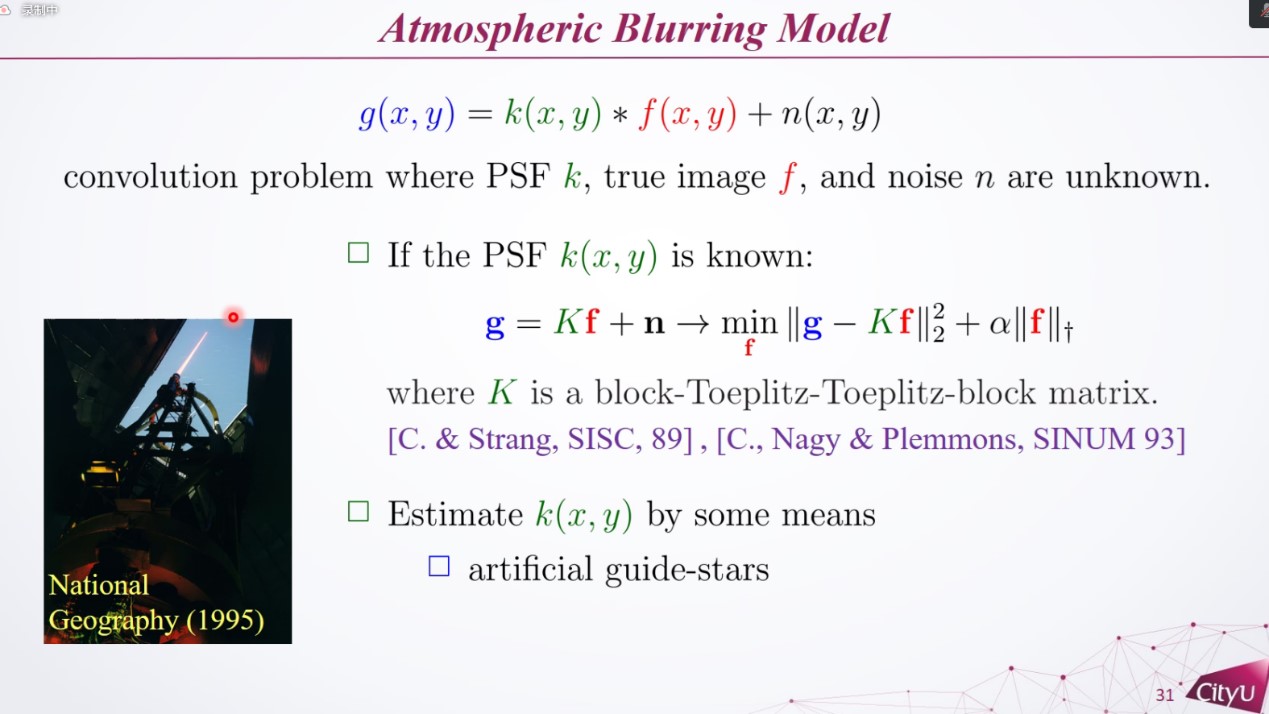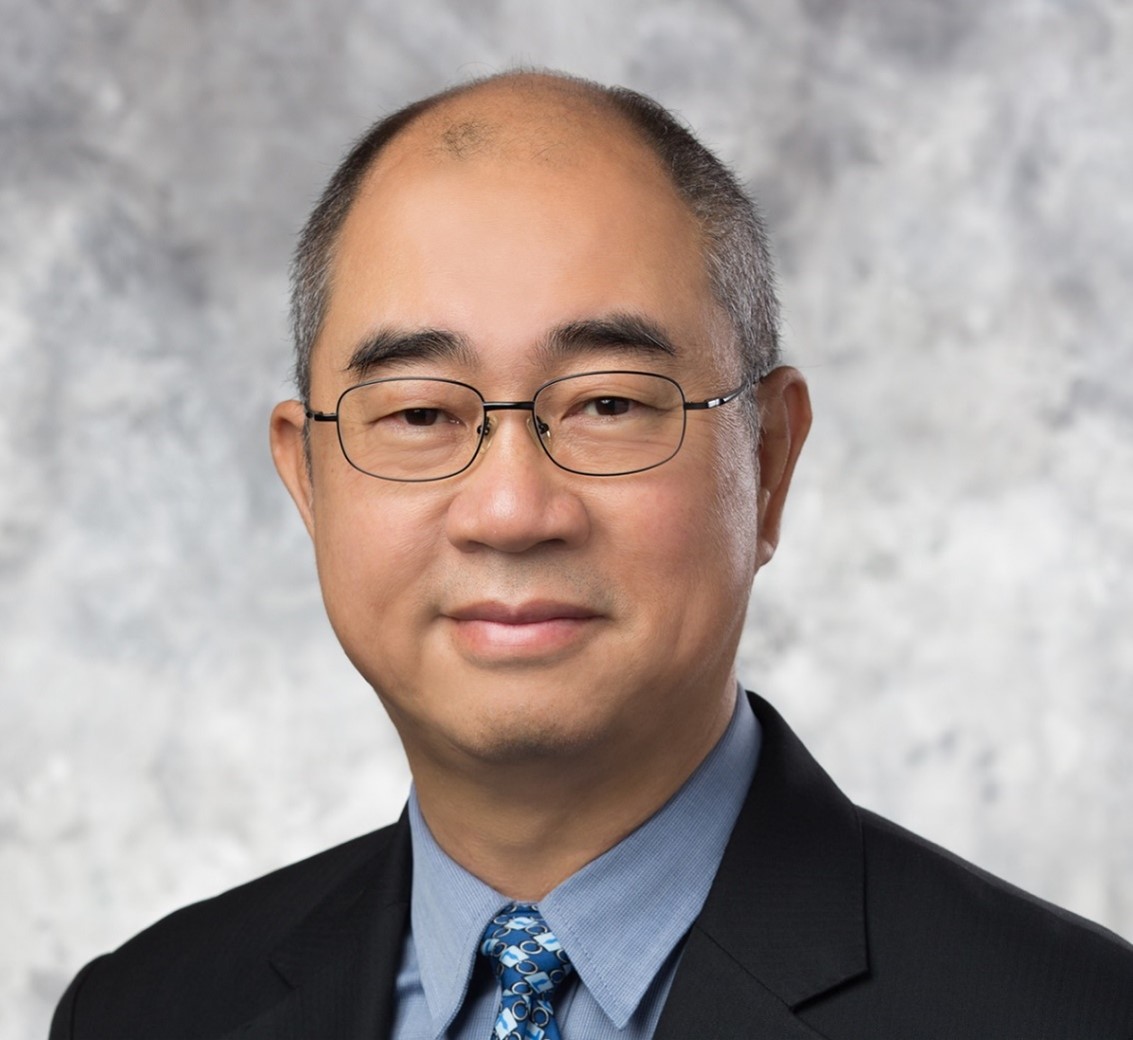Raymond Chan: Sparsity—The Beauty of Less is More
2022-09-16
On September 8, 2022, Prof. Raymond Chan from Department of Mathematics, City University of Hong Kong was invited to the 83th Science Lecture of College of Science, SUSTech. He gave a lecture themed “Sparsity—The Beauty of Less is More”, which was chaired by Prof. Qiman Shao, head of Department of Statistics and Data Science, Southern University of Science and Technology.
With the advance in sensors, data become ubiquitous. To make sense of the data we have to solve higher and higher dimensional problems that would seem intractable to solve. However, many high-dimensional problems have solutions that live in low-dimensional spaces.

Prof. Chan is an expert in image processing. During the lecture, Prof. Chan mentioned some image processing methods via sparsity. By using computational mathematics, in particular to the tools from numerical linear algebra and computational imaging, these sparsity-based methods can improve image quality across a range of subjects by making them less blurry. The applications include the MRI reconstruction and atmospheric blurring model.
In fact, Prof. Chan is currently collaborating with a European team on developing algorithms for the European Southern Observatory and the world's largest telescope, the Extremely Large Telescope, in Chile.

After the lecture, the audience asked questions about sparsity. In the end, Prof. Chan concluded that “There are many other data-related applications that can be solved via sparsity, getting more from less”.
Q&A Section:
Q: Can the sparsity method be used with deep learning?
A: Yes. We can try to apply this method to deep learning. The method is a optimization method,and there have been related papers that combine it with deep learning.
About the speaker:

Raymond Chan is a Chair Professor in the Department of Mathematics at City University of Hong Kong. He joined CityU in 2019 as the founding Dean of the College of Science and is now the Vice-President of Student Affairs. He obtained his BSc degree from The Chinese University of Hong Kong and his MSc and Ph.D. degrees from New York University. Prof. Chan is the winner of the Feng Kang Prize and Morningside Award and is a SIAM Fellow, a CSIAM Fellow, and an AMS Fellow. He was a SIAM Council member and now serves on its Board of Trustees, and he is currently the Vice-President of the International Consortium of Chinese Mathematicians (ICCM).




